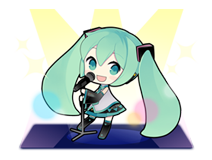Lazak greets everyone and sits down to take a cup of coffee
Congrats [MENTION=35259]Leggy[/MENTION]; and Congrats [MENTION=41234]T-ELOS[/MENTION];

[MENTION=93850]|♚|KK|♚|[/MENTION]; senpai to answer your question:
I learned to read and understand japanese in about 6 months, this doesn’t mean i can read everything and understand fully everything.
I now understand:
up to 80% in reading comprehension for very easy texts
75% for intermediate texts (mostly light novels)
60% for advanced texts (texts from classical japanese literature for example).
I will be able maybe to understand:
up to 15% of words from context if it’s a very easy text
generally it’s about 10% for intermediate and 5% for advanced texts
and the rest of the words i have to look up.
I got these numbers after hiring a japanese professor to test my japanese reading comprehension with 50 different text (10 very easy, 20 intermediate and 20 advanced texts), which were chosen by her. The texts were from one page to five pages maximum and came either from light novels or japanese literature.
You don’t have to memorize every time you find a new kanji or a new word, you will encounter them again, they are very rare words that you will encounter only once, especially if you read the same author or genre in the beginning. Just focus on reading and understanding how the language works, internalize it. When you read, you have to understand the idiolect of the author and be able to decipher it. Of course that means in the beginning that your idiolect will be also limited in japanese, but with time you will also expand yours, by reading various authors and various works.
You’re translating every sentence in your head because your brain is not accustomed to reading and deciphering japanese and doesn’t have the patterns to understand it. When you read an english text for example your brain deciphers the letters and sentences and then « send » it back to you in a way comprehensible for you, all in less than a fraction of a second if you’re fluent. If you read japanese texts or sentence on the other hand, your brain doesn’t know what to do, don’t have any patterns except those of your native language to which it is accustomed to, which are unuseful, so it has to take up all the ressources of your brain to try to decipher what you read, which is why many people have to translate in their head. When any teacher or anyone ask you to read or immerge yourself in japanese it’s not only to learn consciously japanese, (vocabulary learning, etc….) but it’s also for your « unconscious » part of your brain (or rather the part of your brain that you don’t control) to find patterns and understand how the language works. That’s much more important than learning vocabulary or anything else in the beginning, if you’re self studying.
If your brain doesn’t have the patterns to understand a japanese sentence, you can have all the vocabulary you want and know every word in and out, you won’t be able to understand japanese directly without translating in your head every time, every word, every sentence.
You have to simply read, listen, write and watch as much as possible and immerge yourself, so that your brain can understand how the language function. One day you don’t need to translate every sentence in your head anymore, because your brain will start to understand japanese as its understanding of the english language. This can be in a few months, in a few years, it depends on the person and the length of exposure to that language. I spend in the beginning 4h learning japanese each day from monday to friday and more on weekends (I woke up 1h earlier and got 1h later to bed, which helped me to earn 2 more hours per day for learning). I hope that answered your question.




















